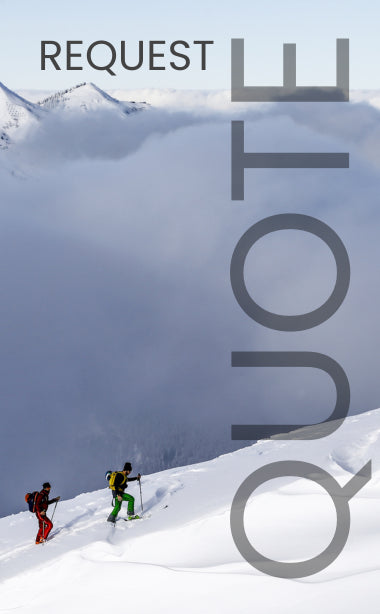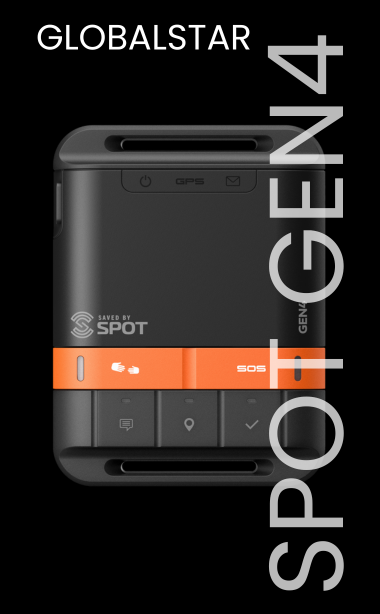You have no items in your shopping cart.
Why a Satellite Phone is an Essential Piece of Survival Equipment
Even in today's urbanized world, nature is vast and beautiful. We've written many times before about stunning natural vacation destinations around the globe, where anyone wanting to get away from civilization can experience boundless adventure. From the Polar Regions to rainforests to deserts, there's always something new to see, and it could take a lifetime to see everything Earth has to offer.
We've also emphasized in the past how important it is that you can call for help if you need it for beginners & experienced world travelers. The untamed wilderness has different standards than day-to-day life, and it's easy to underestimate your level of preparedness when you plan to travel into the unknown. You can be in fantastic physical shape, be fully stocked up on supplies, and even be quite familiar with the wilderness in which you want to travel, but most people are so used to life being a certain way that we're bound to forget how different the situation is when you're far from home. Small errors in judgment are one thing when you're in town, but their effects can be magnified a thousand-fold when you're out in the wild.
It's extremely easy, even for experienced wilderness adventurers, to enter a survival situation without realizing it — suddenly, your life is in danger, and it may not be obvious. Maybe you've lost the trail you were following. Maybe one of your water bottles has broken, or you just noticed its contents have leaked away. Maybe you underestimated the time your hike would take or the difficulty of a climb, and now you're exhausted, far behind schedule, and your supplies are running low. It's extremely easy to think, "Oh, the trail must be close by. I'm sure to find it again shortly." Or "Well, it's just one bottle of water. I have others and if need be I can refill them at a water source." Or "Sure, it's getting dark, and I'm pretty beat, but finding my way can't possibly be that hard. This is a National Park, after all." Or "I'll just head in this direction. The lights I see from town can't be that far."
But the truth is that situations that might seem only to be a passing inconvenience can be a matter of life and death in the wilderness, and our minds don't always switch into survival mode when they need to. The solutions to survival problems can seem simple, at least on the surface, and often amount to walking in a particular direction in search of help, water, or civilization. It's easy to forget that our perception of distance can be deceiving and to overestimate our own stamina and capabilities. In this way, a series of perfectly reasonable, logical-seeming decisions can make a survival situation worse and worse, and ultimately result in tragedy.
Getting Lost or Injured… and Getting Help
The most important part of ensuring your survival in an unexpected wilderness situation is planning. Before you leave for your trip, you should always create a safety plan with another person who can serve as an emergency contact. This person should know the route you're going to take and the day you're expected to return. Have a contingency plan in place where the person will contact help for you if they don't hear from you by a certain date. Bring a satellite phone so you can check in with your contact from time to time, and opt for one with a GPS breadcrumb trail such as the Iridium 9575 Extreme.
Why have both a satellite phone and a person at home to keep track of you? Because if the worst happens, your contact will be able to alert the authorities if you're unable to do so yourself. Search and Rescue will still have your most recent GPS coordinates as a place to start looking, even if you're personally unable to initiate the call for help. Plus, with a satellite phone, it will be much easier to update your contact with new information even while out of cellular service range. Details like the park entrance you used, the location of your vehicle, and the exact time when you set out for your hike can all be extremely helpful in the event of a rescue attempt.
Always do everything you can to make it easier for SAR to find you. You need only delve into some stories of Search and Rescue operations to learn how incredibly difficult it can be to find a person, even in relatively barren terrain. Time-tested methods like ground searches, tracking dogs, and aerial searches still have a chance to fail, and that certainly isn't the fault of the searchers. Rather, it's due to the unpredictability of nature. In some cases, it's possible to search an area numerous times and still never cover all the possible concealed areas.
When Cellular Service Fails
It's tragic enough when a person gets lost in the wilderness and doesn't survive, but there are few things more heartbreaking than a story of a lost person who tried to call for help but couldn't. Missing hikers' bodies have been discovered with their cell phones full of failed outgoing calls and text messages marked "not delivered." Others have put themselves in worse danger trying to reach a hilltop in search of cell service. And some we can only theorize about because they have still never been found. Even people who have eventually been rescued are still sometimes disabled for life due to injuries they sustained during their ordeal.
In every one of these cases, a reliable means of calling for help could have made all the difference. Please keep this in mind when you plan a wilderness expedition of any kind. A satellite phone could save your life and prevent your loved ones from going through the emotional pain of your disappearance. It's increasingly obvious that today, a satellite phone is as essential as a life jacket.
 English
English




